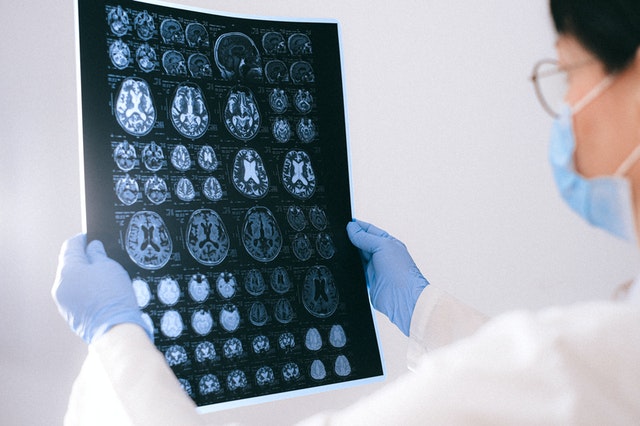
Cocaine is an illicit drug that primarily interacts with the brain, and it taps into and floods the internal reward system through consumption, producing extreme highs. Yet due to its toxicity and effects, those highs can amount to extreme bouts of depression, brain damage and long-term psychological problems.
From disrupting organic structures of the brain, killing brain cells, and motivating addictive tolerances, cocaine is a dangerous drug, carrying short and long-term effects.
Also found to deplete mental health and aggravate many co-occurring mental health conditions, depression, psychosis, seizure disorders, and schizophrenia are common results of long-term cocaine abuse.
Here’s the reality behind cocaine addiction, as we answer, ‘what are the effects of cocaine on the brain?’. Not only is it an addictive substance, but a life-limiting drug. Find help here at Action Rehab to revert the damages of cocaine abuse.
Cocaine and its effects on the brain
Cocaine abuse can result in both short and long-term effects. It depends on how frequent, intense, and prolonged consumption has been for a user. Short-term effects primarily reflect the positive feelings that cocaine exposure is known to offer.
Some mild psychological changes and symptoms are expected. Long-term results show how damaging ongoing exposure can be, amounting to chronic cocaine addiction symptoms. Below is some insight on ‘what are the effects of cocaine on the brain?’, covering its stimulating impacts and damages.
Short term effects of cocaine
Cocaine is a stimulant drug, and it stimulates positive feelings as it engages with the brain’s reward system. Producing high dopamine levels, feelings of happiness, confidence and alertness are common through cocaine exposure. Mental health is also improved due to the additional production of happy chemicals.
Alongside the positive feelings, which are reinforced and longed for, some adverse effects can occur. Anxiety, paranoia, sleep problems and panic-like symptoms can show through cocaine abuse.
Long term effects of cocaine
As abuse becomes more consistent and tolerances develop, cocaine addiction can display. Diagnosed as a compulsive brain disorder, cocaine addiction is a tough habit to ignore. The once positive effects, to this point, are now harder to feel, requiring even greater exposure. The negatives also begin to dominate, motivating consumption as a coping strategy.
Long-term effects of cocaine on the brain can result in memory loss, unstable structures, and vulnerable brain cells. As cocaine changes the brain’s design by flooding it with artificial dopamine, natural products can become difficult moving forward.
It also impacts the balance of the brain and how it responds to specific situations, placing users into a state of unhealthy alertness. Premature deterioration of brain cells can also lead to neurological conditions and weaknesses, with long-term concerns.
Whilst the adverse effects of cocaine abuse are noticeable, it can be difficult for a user to withdraw due to the positives. The addictiveness of the positive rewards and reinforcements can outweigh the withdrawal symptoms and side effects through consumption. This makes it very difficult to see the need for intervention and withdrawal.
Cocaine damages one of the most vital organs in the body. Along with causing various conditions and impairments, it can also affect mental health and outlooks.
Effects of cocaine on mental health
Cocaine addiction is heavily linked to poor mental health. Dual diagnosis is prevalent through cocaine exposure, as it disrupts emotional regulation and the central nervous system.
On initial use, cocaine can alleviate pre-existing mental health issues. As it activates the reward system, pleasure is experienced through increased dopamine levels. This association is then made to a user, viewing cocaine exposure as a reliever.
However, once a strong association has been made, it will take much greater quantities of cocaine to relieve mental health symptoms. Organic dopamine production will also be harder to experience, requiring cocaine exposure as a resolution.
For someone with pre-existing mental health issues, abuse can result in a rebound effect. For someone with good mental health, depression, anxiety, and panic disorders can still develop due to how cocaine damages the brain.
Co-occurring disorders are expected through long-term abuse and require specific treatment to ensure that the brain is fully healed. The effects of cocaine on the brain can be highly complicated, requiring professional intervention.
Treatments available for cocaine addiction
As cocaine mainly adapts and harms the brain, many treatment options must be completed. Rehabilitation involves psychological treatment methods underpinned by talking therapies.
Available therapy sessions include cognitive behavioural therapy, group therapy, individual therapy, family therapy, motivational interviewing, and exposure therapy. Sessions will unravel the cause of cocaine abuse, along with the role that it plays for users. Together, they will also work to rebuild normal outlooks and responses, healthily regulate emotions, and promote positive coping.
Detoxification will also be available and recommended to overcome drug addiction. Cocaine will need to be removed from the body to recover, and it will be removed through a detoxification process, medically assisted, and observed to uphold safety. Getting clean will be imperative to remove all influences and to regulate cravings. Once cocaine has been eliminated, preventing future exposure will be essential.
Recovering from cocaine addiction will involve unlearning old habits and forming new ones. Brain health and restoration will be necessary to protect recovering addicts from relapse. Aftercare services and relapse prevention planning will assist with long-term recovery, helping to produce the right mindset to avoid relapse.
By answering ‘what are the effects of cocaine on the brain?’, it’s clear to see that it is a controlling substance, even after minimal use. Long-term use can be detrimental, requiring comprehensive intervention.
If you’re struggling with mental health issues and/or cocaine abuse, reach out to Action Rehab for some confidential advice. We can assess your circumstances to gauge the type of treatment and support most suited for your needs. Cocaine rehab and dual diagnosis treatment can be accessed here to aim for physical and psychological recovery.
Posted on Friday, December 10th, 2021 at 12:26 pm in Addiction, Latest News.






 Call Us
Call Us Contact Us
Contact Us